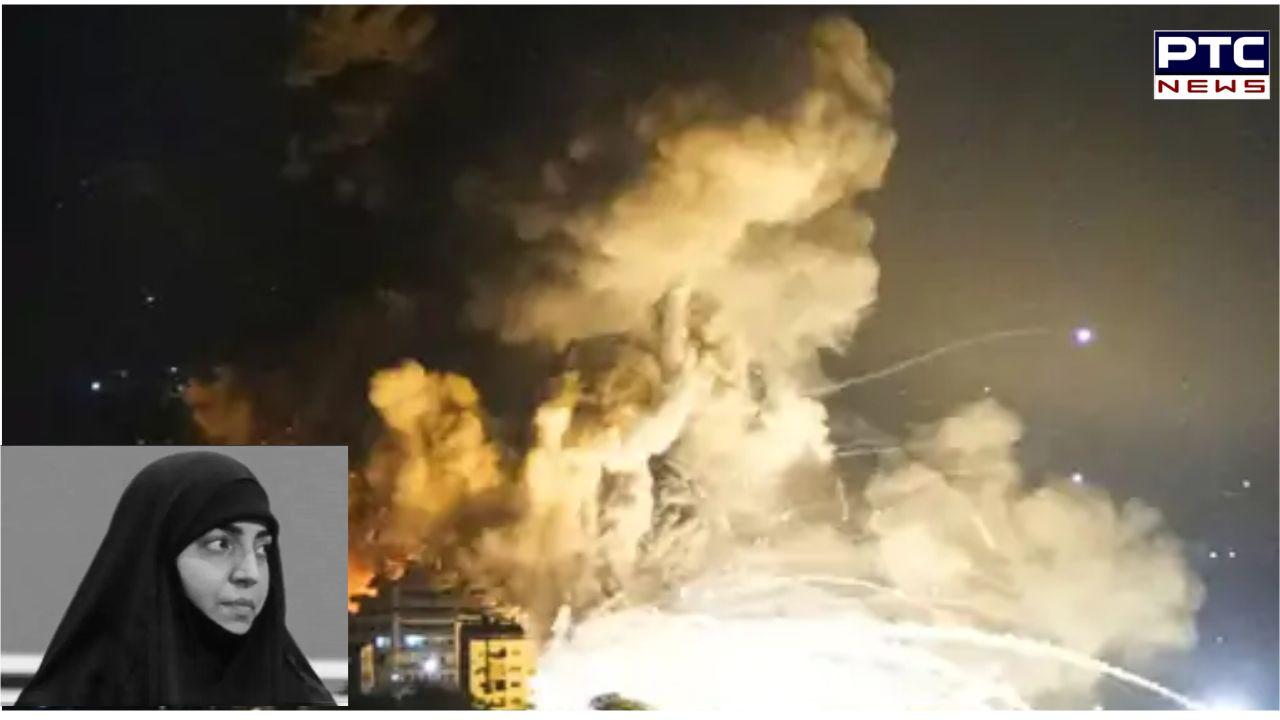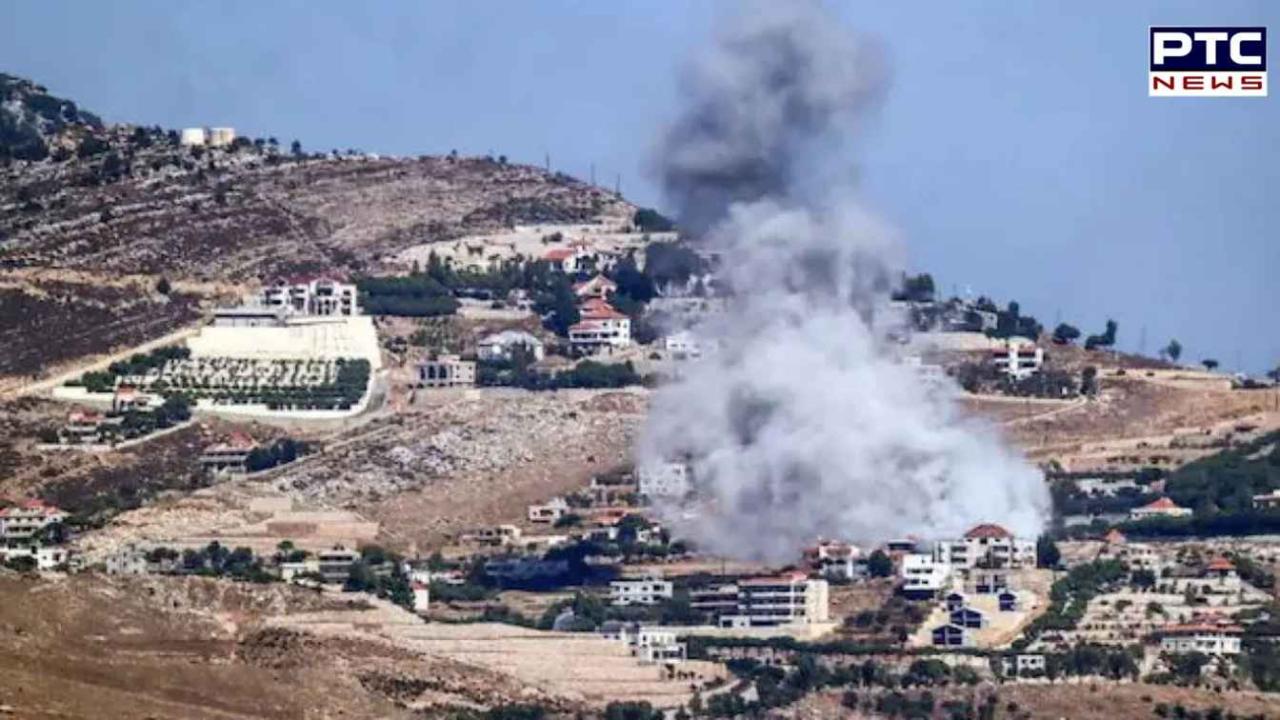

Israeli strikes escalate in Lebanon; claims of Hezbollah leader Hassan Nasrallah's daughter Zainab killed
PTC Web Desk: The Israeli military continues its missile strikes on multiple locations in Lebanon, including the capital city of Beirut. The Israeli Defense Forces (IDF) have warned residents of Beirut’s Dahiya district to evacuate immediately, stating that Hezbollah is using these areas to launch attacks on Israel.
Late on Friday, Israel launched a missile strike on Hezbollah's headquarters, killing six persons and injuring 90 others. This attack occurred roughly an hour after Israeli Prime Minister Benjamin Netanyahu delivered a speech at the United Nations (UN). According to Israeli media reports, the daughter of Hezbollah leader Hassan Nasrallah, Zainab, is believed to have been killed in the attack. However, Hezbollah has not confirmed her death, though Israeli Channel 12 reported the claim.
Reports from Lebanese officials indicate that Zainab's body was recovered from the rubble of a command centre that was targeted by Israeli forces.
The Israeli army has also confirmed the deaths of two key Hezbollah commanders: Muhammad Ali Ismail, the head of Hezbollah’s missile unit, and his deputy, Hossein Ahmad Ismail.
In response to the ongoing conflict, Iran’s Supreme Leader Ayatollah Khamenei held an emergency meeting with the National Security Council on Friday night at his residence. During the meeting, Iranian President Masoud Pajhsakian condemned the Israeli attacks, labeling them as war crimes. Khamenei’s advisor, Ali Larijani, criticised Israel, stating that killing people would not solve the issue, as others would replace them. He warned that Israel's actions would only strengthen the resolve of those opposing them.
In his speech following the attacks, Prime Minister Netanyahu dismissed criticism, saying, "Our enemies thought we were like a spider’s web, but we have nerves of steel." This remark was a response to Nasrallah's past speeches, where he often described Israel as fragile as a spider's web. Netanyahu has since cut short his trip to the United States and is returning to Israel amid the escalating situation.
Meanwhile, Israel has instructed residents of Beirut's Dahiya district to vacate the area immediately, stating that these locations are being used by Hezbollah to launch attacks on Israel. This ongoing conflict marks the most intense fighting between Israel and Hezbollah since the 2006 war, during which over 1,000 people were killed in Lebanon.
The current violence escalated on September 17 when a pager attack hit Lebanon, followed by subsequent explosions in pagers and walkie-talkies the next day. Hezbollah and Lebanese authorities have blamed Israel for these incidents. Since then, Israel has launched consistent missile strikes across Lebanon. According to Al Jazeera, the ongoing Israeli missile campaign has resulted in over 700 deaths and displaced more than 500,000 people. Israel has named its military operation "Northern Arrows."

On September 23, Israel conducted its largest airstrike on Lebanon, targeting 1,600 Hezbollah sites and claiming the destruction of 10,000 rockets. This assault led to the deaths of 569 people.
At the UN General Assembly on Friday, Netanyahu addressed the escalating conflict, stating that he had not initially intended to speak but felt compelled due to the falsehoods being spread about Israel. As he began his address, several country representatives walked out in protest. During his speech, Netanyahu highlighted a map he had previously shown, illustrating how Israel and its Arab allies are connecting Asia and Europe, as well as the Indian Ocean with the Mediterranean Sea.
Despite growing international calls for a ceasefire, Israel rejected these proposals. On September 26, Netanyahu’s office refuted reports suggesting a ceasefire agreement, stating that the claims were inaccurate.
This rejection followed discussions with the White House, where it was reported that Israel had initially agreed to a 21-day ceasefire proposal. White House Press Secretary Karine Jean-Pierre mentioned that the ceasefire was discussed and agreed upon on Wednesday. The ceasefire announcement was supported by a joint statement from the U.S. and France at the UN. However, just hours later, Israel rejected the proposal, intensifying the already volatile situation.
- With inputs from agencies
